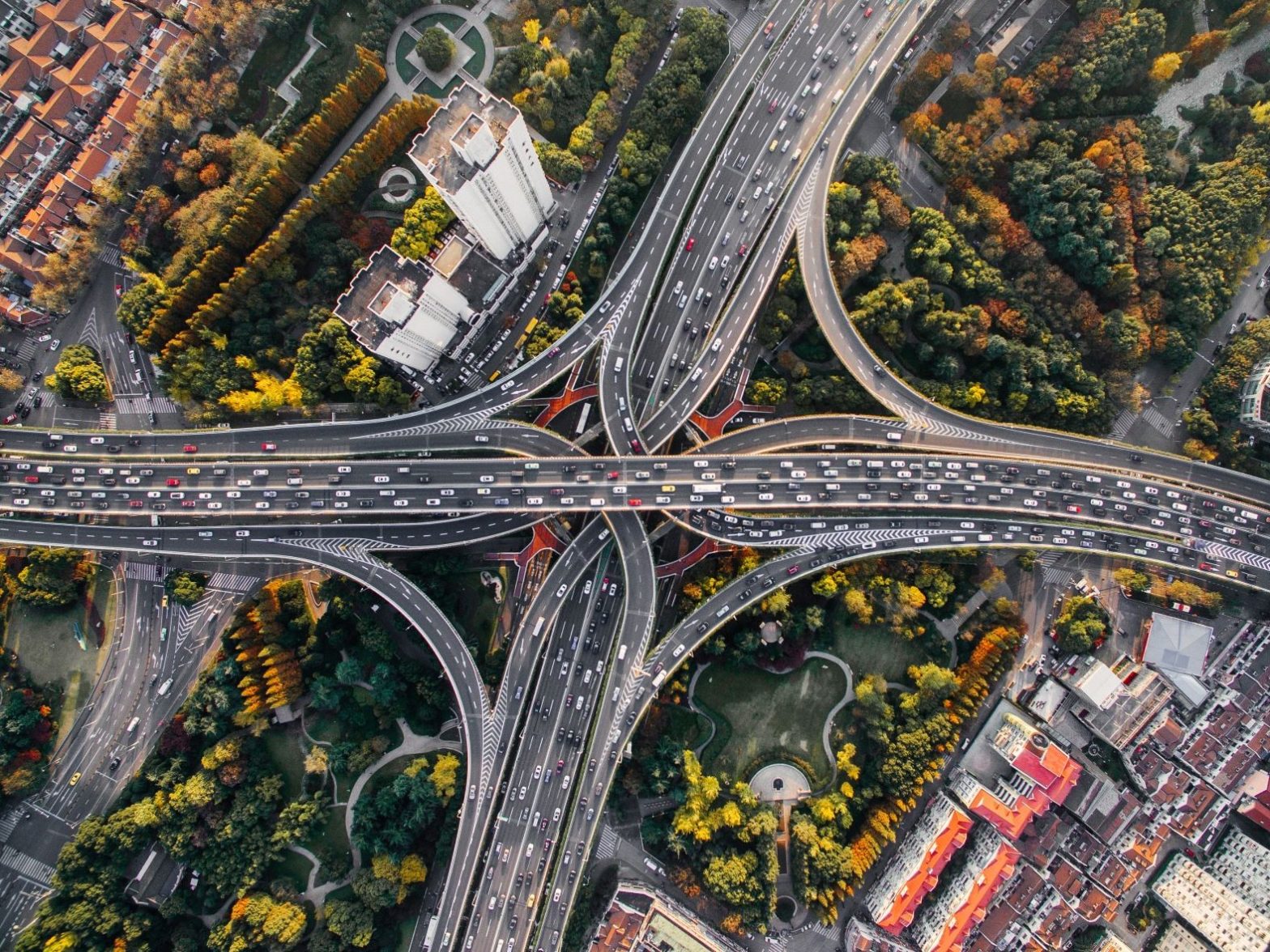
Photo: denys nevozhai unsplash
Study shows smart traffic systems could cut CO2 emissions
17 May 2022
by Christopher Carey
Global savings in CO2 emissions from smart traffic management systems could hit 205 MMT (Million Metric Tons) by 2027, up from just 145.7 MMT in 2022 – a growth of 41 percent.
The findings were revealed in a new study by Juniper Research, which says the savings will be equal to almost twice the CO2 emissions arising from UK domestic transport in 2019. Reducing congestion through optimised traffic control is cited as the main influencing factor.
Speaking to Cities Today, Cara Malone, author of the report and a research analyst at Juniper Research, said: “Smart traffic management uses digital technologies including AI and machine learning to optimise traffic control, [where] traffic can be controlled – including timings at traffic intersections being changed and other measures – in order to prioritise certain modes of transport over others based on real-time data to reduce congestion and minimise harmful emissions.”
To establish the savings possible, the amount of vehicle emissions generated across the forecast countries and regions was established using third-party data sources. A region, country and year-specific rate of reduction was then applied. Data was derived from smart parking technology providers and a year-specific per-vehicle emission cost was applied across applicable vehicle types.
Riyadh
In 2019, tech firm Dahua developed a traffic management solution for Riyadh, Saudi Arabia, which involved applying data collection to achieve real-time information and an accurate signal release plan.
Since its implementation, the overall traffic efficiency on monitored intersections in the city has been increased by 12 percent and around 1,000 traffic violations are being captured on a daily basis.
The report identified smart intersections as the driving force behind reductions globally, with the amount of time spent in traffic set to decrease by 36 hours on average per annum per motorist by 2027.
The research forecasts that investment in smart intersections will reach US$10.2 billion by 2027, rising from US$5.7 billion in 2022.
Image: Denys Nevozhai











